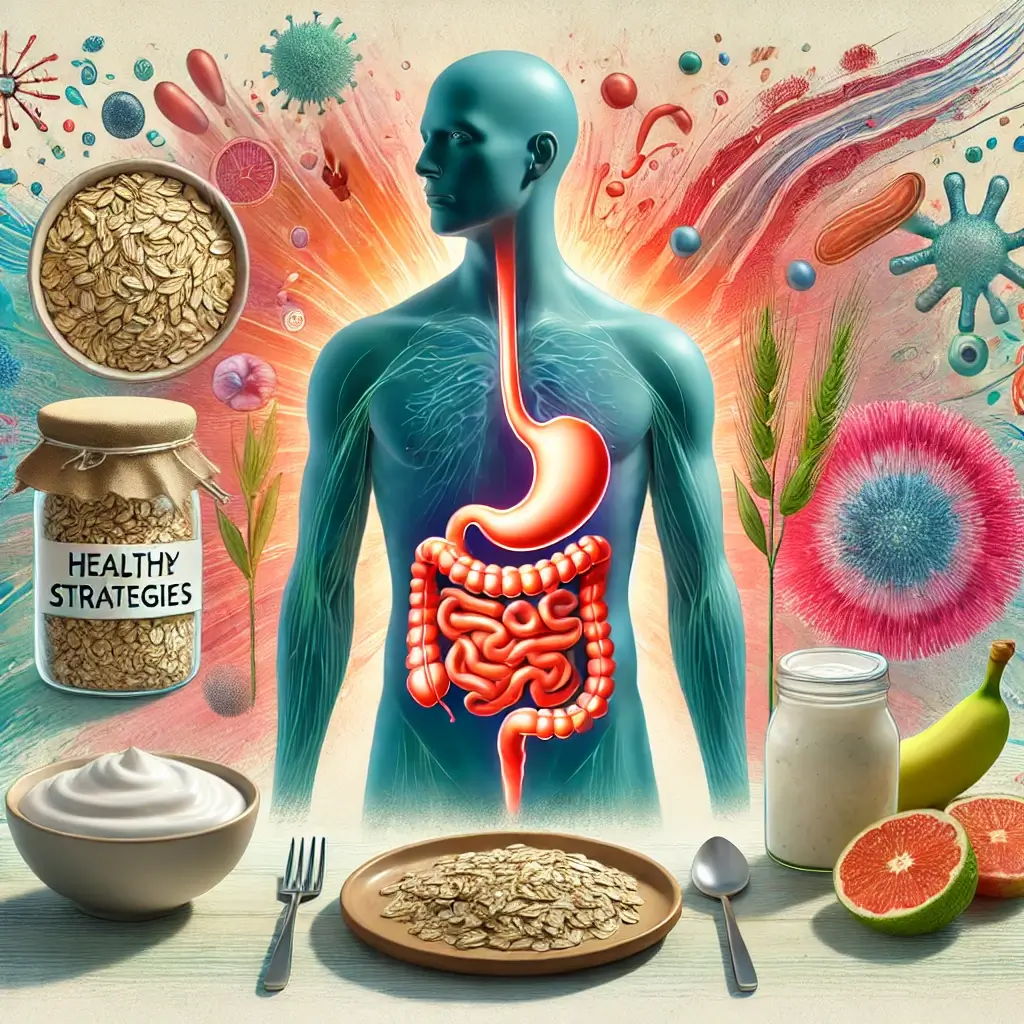Understanding the Impact of Crohn’s Disease
Living with Crohn’s disease can feel overwhelming due to its unpredictable symptoms and impact on daily life. This chronic inflammatory bowel disease (IBD) affects the digestive tract, leading to abdominal pain, diarrhea, fatigue, and weight loss. Crohn’s disease also interferes with emotional well-being, creating a need for comprehensive management strategies. Although there is no cure, patients can manage symptoms effectively with a combination of medical treatment and natural approaches.
The Connection Between Diet and Gut Health
One of the most promising natural strategies for Crohn’s disease is optimizing diet and gut microbiome health. The gut microbiome, composed of trillions of microorganisms, influences digestion, immune function, and inflammation. An imbalance in this ecosystem—dysbiosis—has been linked to worsening Crohn’s symptoms. Dietary modifications can improve gut health and alleviate symptoms, offering a complementary approach to traditional treatments. This article explores dietary interventions and microbiome-focused strategies, highlighting current research and practical tips for implementation.
The Benefits of Soluble Fiber
Soluble fiber is a type of fiber that dissolves in water, forming a gel-like substance that helps regulate bowel movements. Foods rich in soluble fiber, such as oats, bananas, and carrots, can reduce diarrhea and promote gut regularity in Crohn’s patients. However, caution is essential, as high-fiber diets may worsen symptoms during flare-ups. A 2019 study published in Nutrients emphasized the importance of tailoring fiber intake to individual needs, suggesting that soluble fiber could improve stool consistency and gut microbiota diversity (Brown et al., 2019).
Identifying Food Triggers Through Elimination
Food intolerances vary widely among individuals with Crohn’s disease. Elimination diets can help pinpoint dietary triggers that exacerbate symptoms. This process involves removing common irritants, such as dairy or gluten, and gradually reintroducing them while monitoring symptoms. Research published in the Journal of Gastroenterology highlighted that elimination diets led to significant symptom relief in patients who identified and excluded problematic foods (Martínez-Montoro et al., 2020).
The Power of Anti-Inflammatory Foods
Certain nutrients have demonstrated anti-inflammatory properties that may benefit Crohn’s patients. Omega-3 fatty acids, found in fatty fish like salmon, and antioxidants, abundant in fruits and vegetables, can help reduce intestinal inflammation. A study in Alimentary Pharmacology & Therapeutics found that omega-3 supplementation reduced disease severity in some Crohn’s patients, although results were inconsistent (Turner et al., 2021).
Understanding Gut Microbiome’s Importance
A healthy gut microbiome is integral to managing Crohn’s disease. Dysbiosis—an imbalance between beneficial and harmful bacteria—can worsen inflammation and impair gut function. Probiotics, prebiotics, and fermented foods are key tools for restoring microbial balance.
The Role of Probiotics
Probiotics are live microorganisms that support gut health by replenishing beneficial bacteria. A meta-analysis published in The American Journal of Clinical Nutrition found that specific probiotic strains, including Lactobacillus and Bifidobacterium, showed promise in reducing inflammation and improving gut barrier function in Crohn’s patients (Gupta et al., 2021).
Prebiotics and Their Benefits
Prebiotics, such as inulin and fructooligosaccharides, are non-digestible fibers that feed beneficial gut bacteria. Consuming foods like onions, garlic, and asparagus can stimulate microbial growth and enhance gut diversity. A 2022 review in Nutrients noted that prebiotics improved symptoms in IBD patients by promoting anti-inflammatory bacteria (Sharma et al., 2022).
The Value of Fermented Foods
Fermented foods like yogurt, kimchi, and sauerkraut are natural sources of probiotics. Incorporating fermented foods may help maintain microbial balance. A study in Frontiers in Nutrition observed that individuals consuming fermented foods experienced fewer gastrointestinal symptoms and improved microbiota profiles (Lee et al., 2021).
Implementing Dietary Changes Safely
While dietary interventions offer significant benefits, they must be approached with care. Individual responses vary, making it essential to work with a healthcare provider or registered dietitian to develop a personalized plan. Regular monitoring ensures that dietary changes complement medical treatments without causing nutritional deficiencies.
The Importance of Food Tracking
Additionally, food journals can help track symptom patterns and identify effective dietary strategies. Keeping detailed records enables patients to adjust their diets based on real-world outcomes.
Taking a Comprehensive Approach
Managing Crohn’s disease requires a multifaceted approach that combines medical treatments with natural strategies. Dietary modifications focusing on soluble fiber, elimination diets, and anti-inflammatory nutrients can improve symptoms and enhance quality of life. Supporting the gut microbiome through probiotics, prebiotics, and fermented foods adds another layer of symptom management. By collaborating with healthcare professionals and making informed dietary choices, individuals with Crohn’s disease can take proactive steps toward better health and well-being.
